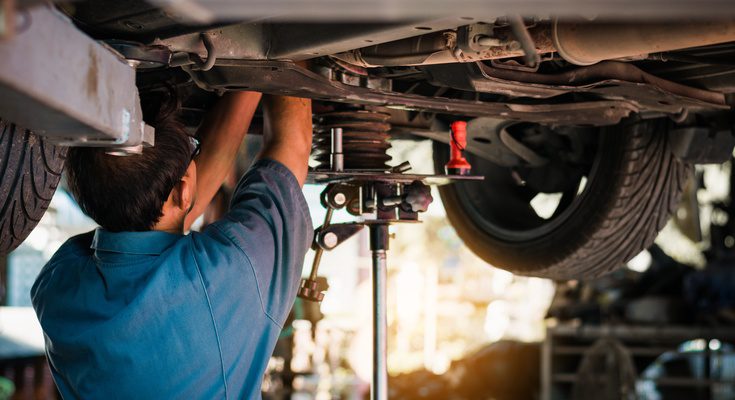Thinking about opening up your own auto repair shop? It’s a big investment, and there’s a checklist of things you’ll need before you can set that sign to Open. A good location is one important must-have, an experienced team is another, and, of course, you’ll need to have the right tools. After all, it’s hard to fix a car when all you have are your bare hands and a few screwdrivers.
But what tools do you actually need for an auto repair shop? Here are some essentials to get you started.
Lifting Equipment: Jacks and Jack Stands
Some repair jobs require getting under the vehicle or lifting it up off the ground. For this, you’ll need jacks and jack stands. You use jacks to lift the vehicle and jack stands to support it while you work. Auto repair shops commonly use hydraulic jacks because they can handle heavier loads and are easier to use than mechanical jacks.
Hand Tools: Wrenches, Pliers, and Screwdrivers
No auto repair shop is complete without a wide variety of hand tools. Some hand tools to have include wrenches of different sizes for loosening and tightening nuts and bolts, pliers for gripping and twisting objects, and screwdrivers for driving screws into place. These will be your most-used tools with how many nuts, bolts, and screws you’ll encounter when working on vehicles.
Saws: Circular, Reciprocating, and Jig
You’ll need saws to cut through metal, plastic, and other materials. Circular saws are one type to invest in. This type of saw has a round blade that spins at high speeds for precise and smooth cuts. Some qualities to look for when buying a circular saw include a sturdy motor, adjustable depth and angle of cut, and dust collection capabilities.
Other types of saws that are useful in an auto repair shop include reciprocating saws, which have a back-and-forth motion, and jigsaws, which can make curved cuts.
Diagnostic Tools: Multimeter, OBD-II Scanner, and Pressure Gauge
In order to effectively diagnose issues with vehicles, you’ll need some diagnostic tools. A multimeter is a device used to measure voltage, current, and resistance in electrical circuits. An OBD-II scanner is a diagnostic tool specifically designed for vehicles that can read trouble codes from the onboard computer and provide more information about what may be causing an issue. A pressure gauge is useful for checking tire pressure or other fluid pressures in your vehicle.
Air Compressor: Inflating Tires and Other Uses
You’ll also need a source of compressed air to inflate tires and perform other tasks, such as powering air tools or cleaning parts. An air compressor is a device that compresses and stores air in a tank. When you need to use the compressed air, you can release it through a hose and nozzle.
Oil Drain Pan: Removing and Recycling Oil
For oil changes, you’ll need a container to catch and store the old oil. Oil drain pans have a wide, shallow design that allows for easy collection and disposal of used oil. Look for one with a built-in spout for pouring the oil into a recycling container.
These might not be all the tools your auto shop needs, but they’re the ones you’ll be using all the time. These essentials will help you hit the ground running and get your shop ready to handle a variety of jobs right from the start.



